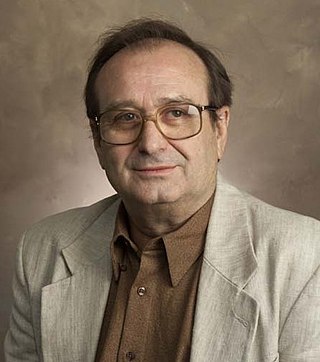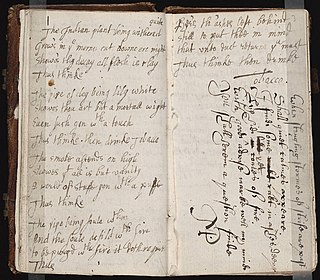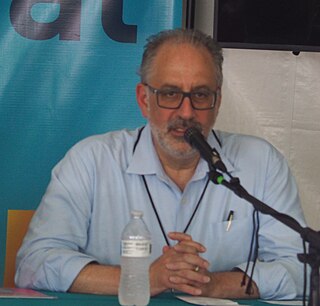Related Research Articles

Adeline Virginia Woolf was an English writer. She is considered one of the most important modernist 20th-century authors. She pioneered the use of stream of consciousness as a narrative device.

Publishing is the activity of making information, literature, music, software, and other content available to the public for sale or free of charge. Traditionally, the term refers to the creation and distribution of printed works, such as books, comic books, newspapers, and magazines. With the advent of digital information systems, the scope has expanded to include digital publishing such as e-books, digital magazines, websites, social media, music, and video game publishing.
In literary criticism, stream of consciousness is a narrative mode or method that attempts "to depict the multitudinous thoughts and feelings which pass through the mind" of a narrator. It is usually in the form of an interior monologue which is disjointed or has irregular punctuation. The term was first used in 1855 and was first applied to a literary technique in 1918. While critics have pointed to various literary precursors, it was not until the 20th century that this technique was fully developed by modernist writers such as Marcel Proust, James Joyce, Dorothy Richardson and Virginia Woolf.
Electronic publishing includes the digital publication of e-books, digital magazines, and the development of digital libraries and catalogues. It also includes the editing of books, journals, and magazines to be posted on a screen.

A romance novel or romantic novel is a genre fiction novel that primary focuses on the relationship and romantic love between two people, typically with an emotionally satisfying and optimistic ending. Authors who have contributed to the development of this genre include Maria Edgeworth, Samuel Richardson, Jane Austen, and Charlotte Brontë.

The Hogarth Press is a book publishing imprint of Penguin Random House that was founded as an independent company in 1917 by British authors Leonard Woolf and Virginia Woolf. It was named after their house in Richmond, in which they began hand-printing books as a hobby during the interwar period.

Eric Flint was an American author, editor, and e-publisher. The majority of his works are alternate history science fiction, but he also wrote humorous fantasy adventures. His works have been listed on The New York Times, The Wall Street Journal, The Washington Post, and Locus magazine best-seller lists. He was a co-founder and editor of the Baen Free Library.

Commonplace books are a way to compile knowledge, usually by writing information into books. They have been kept from antiquity, and were kept particularly during the Renaissance and in the nineteenth century. Such books are similar to scrapbooks filled with items of many kinds: notes, proverbs, adages, aphorisms, maxims, quotes, letters, poems, tables of weights and measures, prayers, legal formulas, and recipes.
AuthorHouse, formerly known as 1stBooks, is a self-publishing company based in the United States. AuthorHouse uses print-on-demand business model and technology.
In comics in the United States, a trade paperback is a collection of stories originally published in comic books, reprinted in book format, usually presenting either a complete miniseries, a story arc from a single title, or a series of stories with an arc or common theme.

Kirkus Reviews is an American book review magazine founded in 1933 by Virginia Kirkus. The magazine's publisher, Kirkus Media, is headquartered in New York City. Kirkus Reviews confers the annual Kirkus Prize to authors of fiction, nonfiction, and young readers' literature.

Google Books is a service from Google that searches the full text of books and magazines that Google has scanned, converted to text using optical character recognition (OCR), and stored in its digital database. Books are provided either by publishers and authors through the Google Books Partner Program, or by Google's library partners through the Library Project. Additionally, Google has partnered with a number of magazine publishers to digitize their archives.
The Grantville Gazettes were a series of anthologies of short stories set in the 1632 universe introduced in Eric Flint's novel 1632 that was published as a bi-monthly electronic magazine from 2003 until shortly after Flint's death in 2022.

James Mustich, Jr. is a bookseller, editor, and writer. In October 2018, Mustich's book 1,000 Books To Read Before You Die: A Life-Changing List was published by Workman Publishing, receiving starred reviews from Publishers Weekly, Booklist, and Library Journal, as well as the praise of other notable independent reviewers. The Washington Post listed it as one of the 50 best nonfiction books of the year.
Persephone Books is an independent publisher based in Bath, England. Founded in 1999 by Nicola Beauman, Persephone Books reprints works largely by women writers of the late 19th and 20th century, though a few books by men are included. The catalogue includes fiction and non-fiction. Most books have a grey dustjacket and endpaper using a contemporaneous design, with a matching bookmark.

Arcadia Publishing is an American publisher of neighborhood, local, and regional history of the United States in pictorial form. Arcadia Publishing also runs the History Press, which publishes text-driven books on American history and folklore.
This is a bibliography of works by the English novelist and essayist Virginia Woolf (1882–1941).
Self-publishing is the publication of media by its author at their own cost, without the involvement of a publisher. The term usually refers to written media, such as books and magazines, either as an ebook or as a physical copy using print on demand technology. It may also apply to albums, pamphlets, brochures, games, video content, artwork, and zines. Web fiction is also a major medium for self-publishing.

An ebook, also spelled as e-book or eBook, is a book publication made available in electronic form, consisting of text, images, or both, readable on the flat-panel display of computers or other electronic devices. Although sometimes defined as "an electronic version of a printed book", some e-books exist without a printed equivalent. E-books can be read on dedicated e-reader devices, also on any computer device that features a controllable viewing screen, including desktop computers, laptops, tablets and smartphones.
"Modern Fiction" is an essay by Virginia Woolf. The essay was published in The Times Literary Supplement on 10 April 1919 as "Modern Novels" then revised and published as "Modern Fiction" in The Common Reader (1925). The essay is a criticism of writers and literature from the previous generation. It also acts as a guide for writers of modern fiction to write what they feel, not what society or publishers want them to write.
References
- ↑ Shapera, Todd (July 11, 1999). "Personal Missions Fuel Small Publishers". The New York Times . Retrieved February 24, 2009.
- ↑ "Featured Author: Virginia Woolf". The New York Times. Retrieved November 3, 2018.
- ↑ Popova, Maria (March 6, 2013). "Virginia Woolf on How to Read a Book". Brain Pickings. Retrieved November 3, 2018.
- ↑ Bly, Robert W. (November 18, 2002). "Does the Printed Word Still Matter?". DMNews. Retrieved February 24, 2009.
- ↑ "Publisher: Akadine Press". OpenLibrary.org. Retrieved November 2, 2018.
- ↑ Parry, Tim (May 1, 2006). "The book closes on A Common Reader". MultiChannel Merchant. Retrieved February 24, 2009.
- ↑ "Common Reader Editions". The Neglected Books Page. Retrieved November 2, 2018.
- ↑ "Remembering "A Common Reader"". The Crime Writers' Chronicle. June 9, 2013. Retrieved November 2, 2018.
- ↑ D., Sandy (February 13, 2006). "Goodbye A Common Reader, I'll Miss You". the imponderabilia of actual life. Retrieved November 2, 2018.